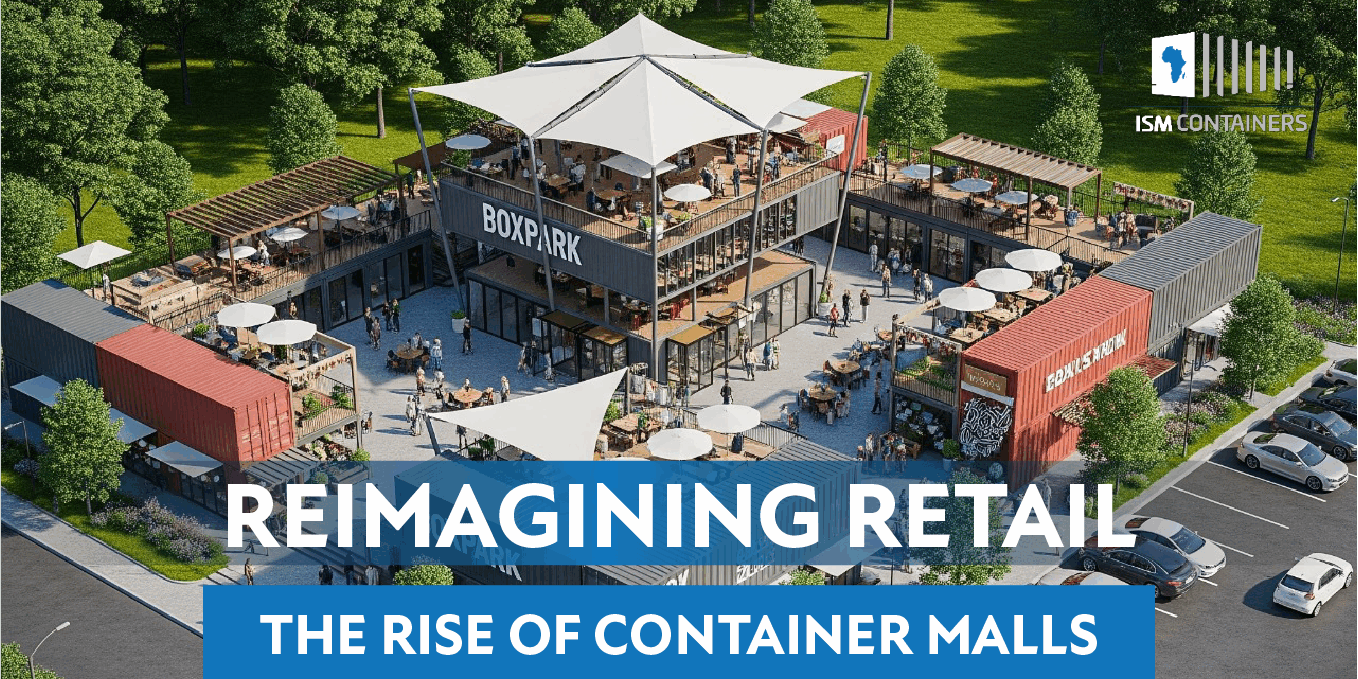Introduction
As urban centers around the world seek sustainable, scalable, and cost-effective ways to create engaging commercial spaces, container malls have emerged as a revolutionary model. Built from repurposed shipping containers, these modular malls offer a modern, eco-friendly alternative to traditional brick-and-mortar developments. From roadside retail strips to lifestyle destinations like Box park, container malls are reshaping how we experience commerce, community, and culture.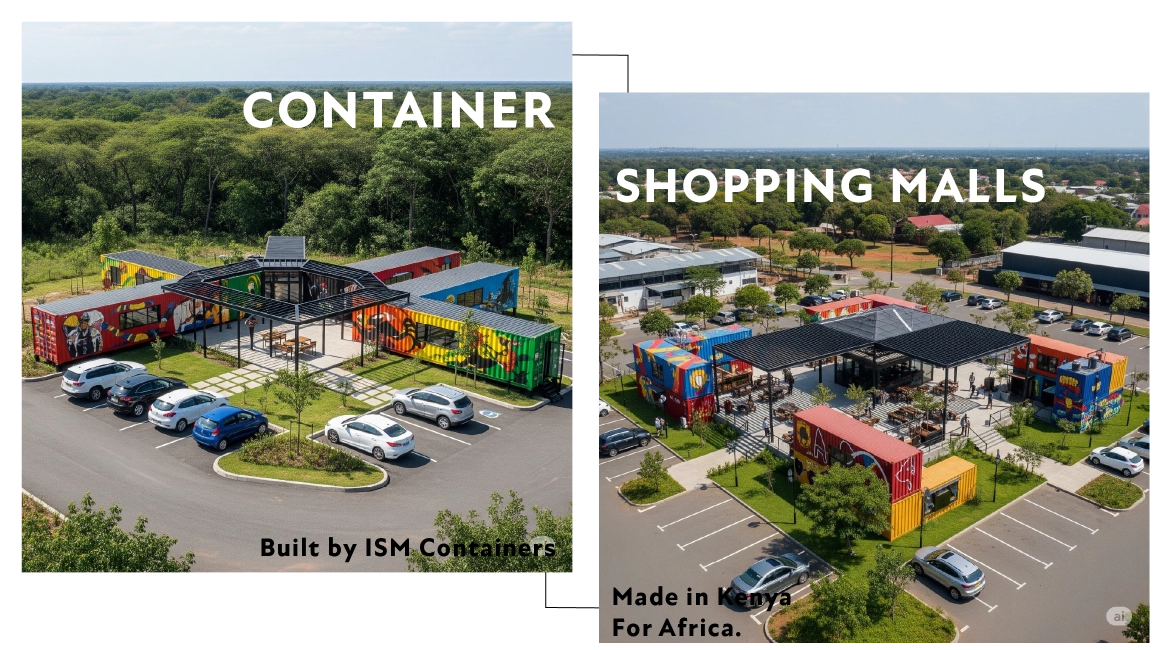
What Are Container Malls?
Container malls are commercial developments created using shipping containers as the core building blocks. These containers are repurposed into fully functional retail units, cafes, event spaces, and offices. Their modular nature allows them to be easily assembled, reconfigured, or expanded—making them ideal for both permanent installations and temporary pop-ups.
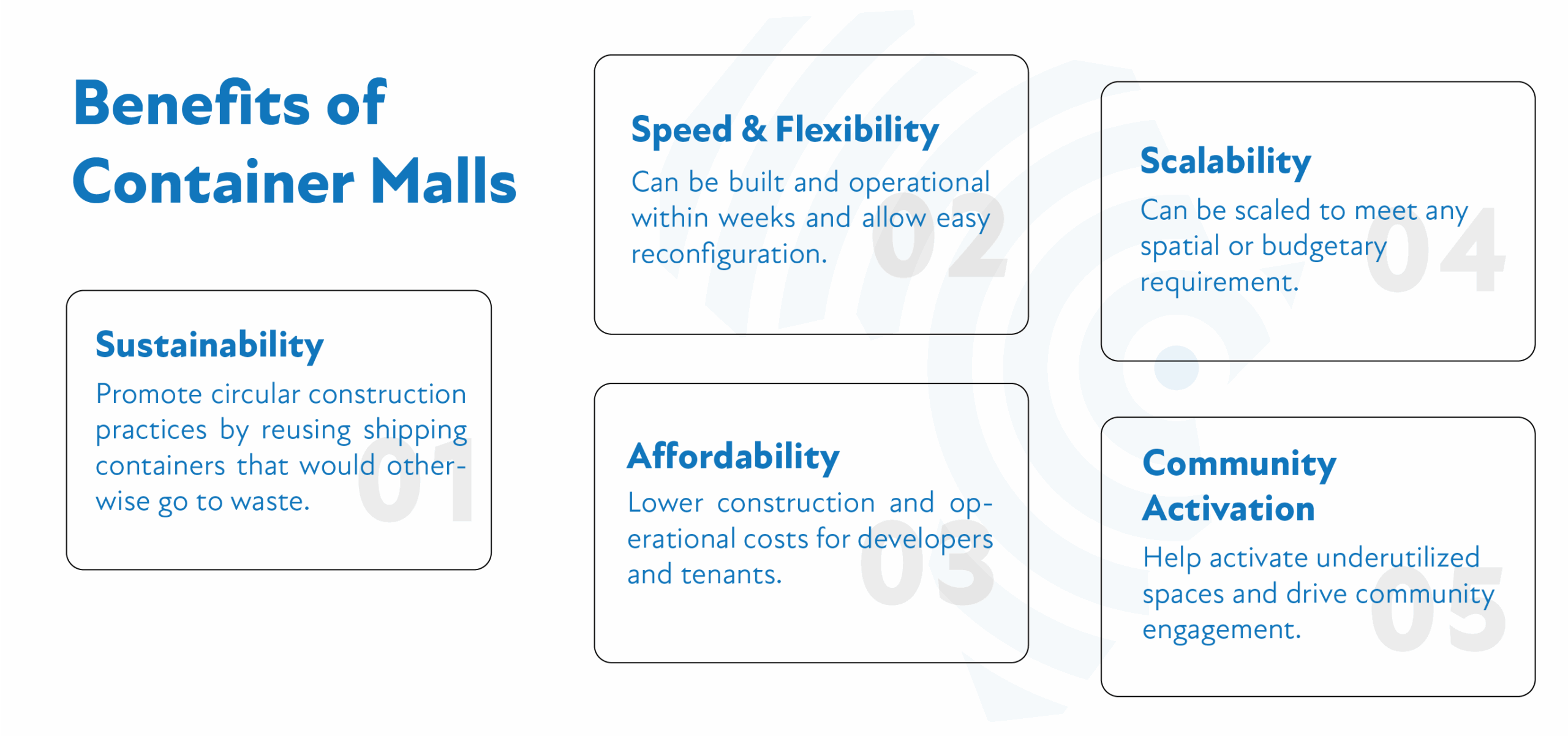
Global Examples of Container Mall Innovation
Boxpark (London, UK)
One of the pioneers in this space, Box park Shoreditch opened in 2011 and has become a landmark in London. Made from repurposed shipping containers, it combines retail, dining, and events into a dynamic social hub, with additional locations in Croydon and Wembley.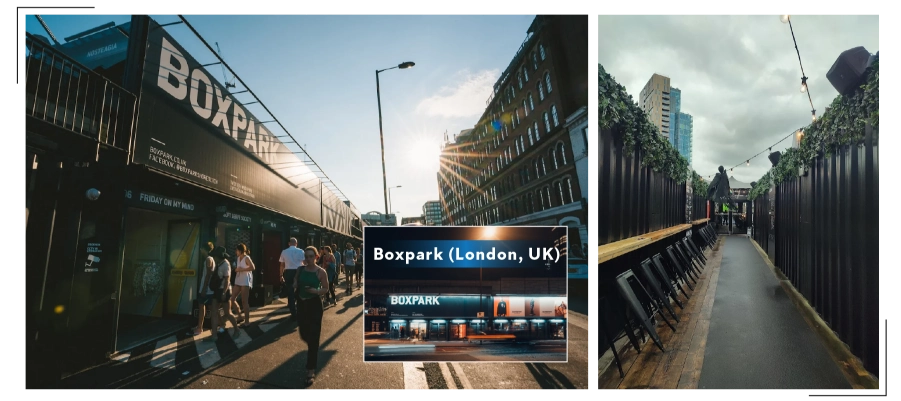
Re:START Mall (Christchurch, New Zealand)
This temporary container mall was rapidly built after the 2011 earthquake to restore retail activity in Christchurch. It became a symbol of resilience, showing how container malls can respond quickly to crises and revitalize urban economies.
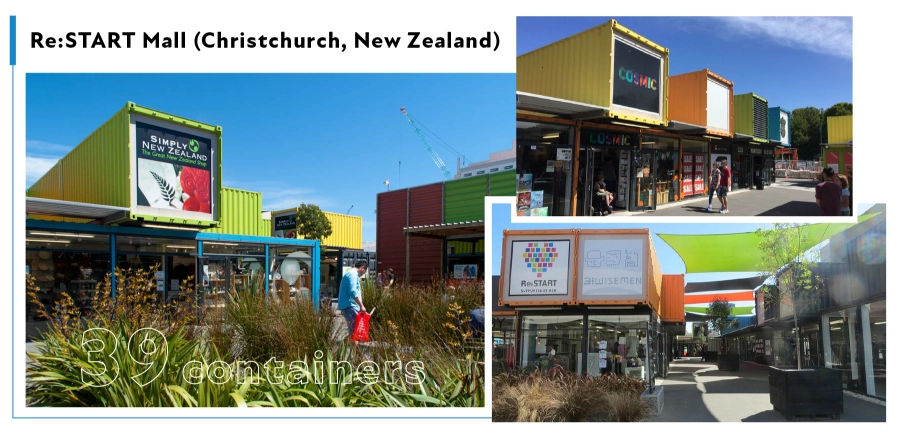
Common Ground (Seoul, South Korea)
Asia’s largest container shopping mall, Common Ground uses around 200 containers to house fashion stores, cafes, and cultural venues. It’s a popular lifestyle destination that blends commerce with experiential design, attracting both youth and tourists.
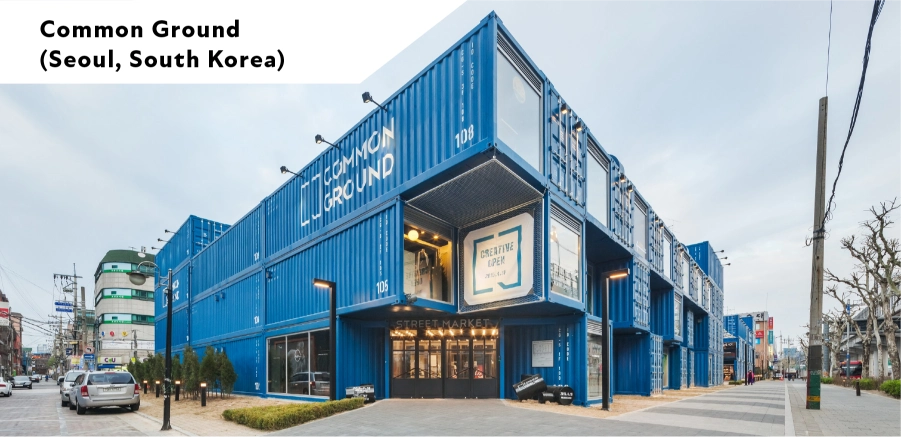
Zaria Court Container Mall (Kigali, Rwanda)
In Kigali, Zaria Court integrates a container-based retail strip into a larger multi-use complex that includes sports courts, hospitality, and co-working spaces. Built by ISM Containers, the mall supports local entrepreneurs and creatives, combining sustainable construction with community-driven commerce in a rapidly modernizing African city.
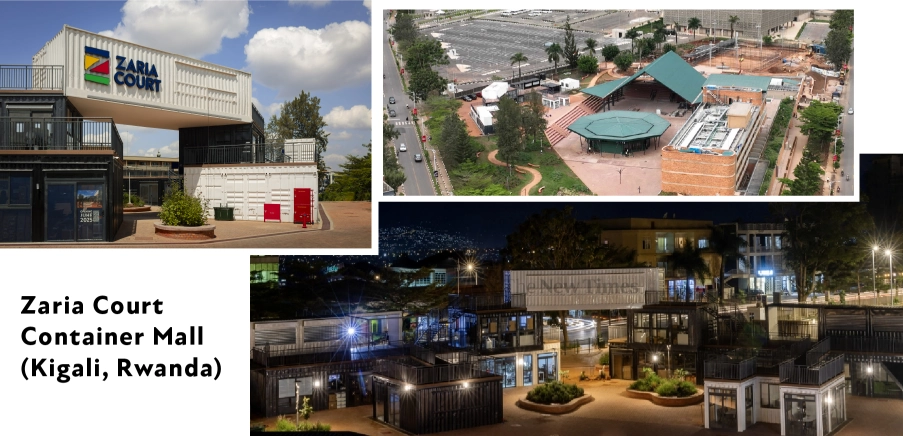
Configurations: From Small Strips to Full-Scale Destinations
Container malls are versatile enough to suit a variety of use cases:
– Roadside Strip Malls: Small installations of 3–10 containers along highways or in rural towns, offering essentials like groceries, phone shops, and eateries.
– Urban Marketplaces: Mid-sized clusters in towns and city centers that house boutiques, coffee shops, salons, and local art vendors.
– Lifestyle & Event Complexes: Larger setups like Box park or Common Ground that double as entertainment venues, exhibition halls, and event spaces.
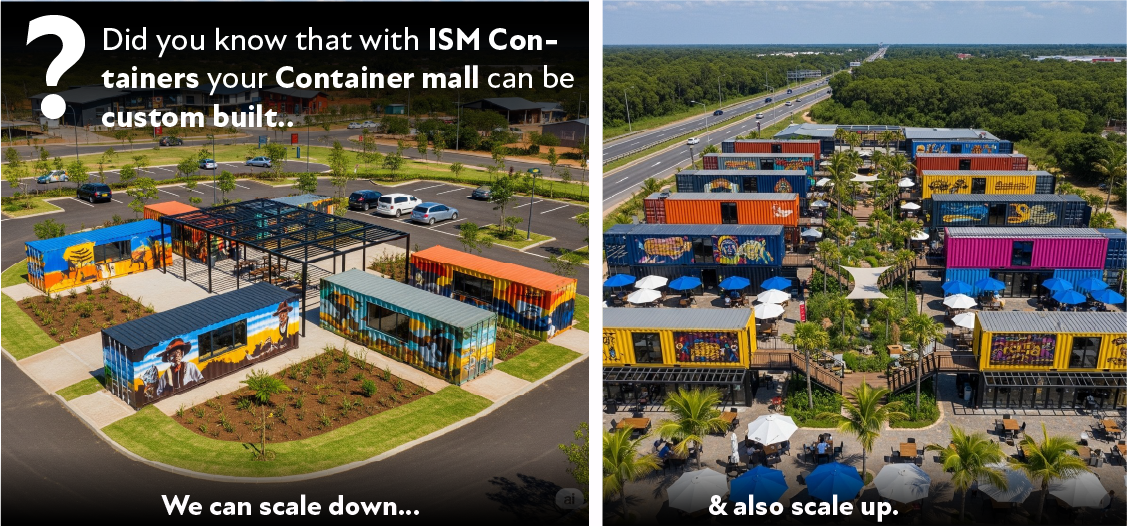
Looking Ahead: The Future of Urban Commerce
Container malls are more than a trend—they are a powerful response to contemporary urban challenges. They promote sustainability, reduce barriers to entry for small businesses, and provide flexible solutions in a rapidly changing retail environment. With innovations like Zaria Court and Box park paving the way, the model is proving its ability to thrive across continents, cultures, and contexts.
Whether you’re a developer, city planner, or entrepreneur, container malls offer a compelling blueprint for inclusive, creative, and future-ready commercial infrastructure.

